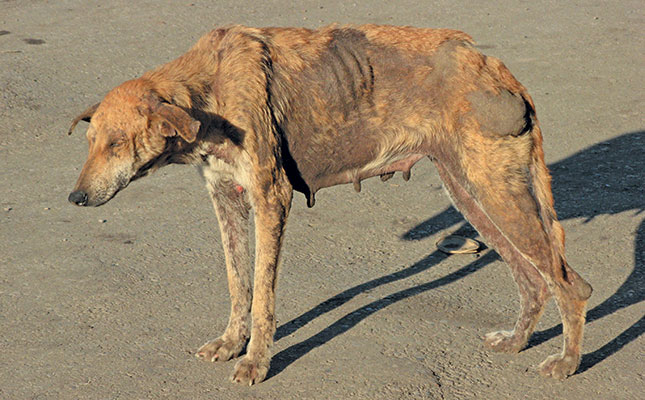
At least 24 people are being treated after they ate the headless carcass of a rabid street dog in Roxas City, Capiz province.
Dr Pilar Posadas, municipal health officer, said that after learning the stray dog was positive for rabies, she immediately ordered the administration of anti-rabies vaccines to the diners today (Wednesday, March 6).
The head of the dog had previously been cut off and taken to a health centre to test for rabies after it bit somebody in the local area.
However, while this was happening, a group of people chopped up the rabid street dog and cooked it up as “pulutan” — a type of snack eaten as an accompaniment to drinking alcohol.
The local government has shouldered the cost of the anti-rabies vaccine used on the 24 people — including one child — as they couldn’t afford the treatment.
The patients already received two doses of vaccine while the third will be administered on Friday.
We reported on a similar incident in September 2015, when the same number of people fell ill after eating a rabid street dog in Iloilo.
Although butchering dogs for food is illegal in the Philippines, dog meat is still a popular delicacy that is eaten discreetly in certain quarters, particularly in the north of the country.
Rabies awareness month
Meanwhile, the Department of Health (DoH) has called on all dog-owners to vaccinate their pets in a bid for a rabies-free Philippines over the next decade.
In a statement yesterday, DoH Secretary Francisco Duque said: “Prevention is key in eliminating the rabies disease. Ninety-nine per cent of all rabies transmissions to humans are from dogs.
“Be a responsible pet owner and vaccinate your pets. This is the most cost-effective strategy to prevent rabies.”
The DoH statement also said that 59,000 deaths were attributed to rabies globally, with the Philippines having at least 200 a year.
The department has recently launched an anti-rabies campaign in line with March being ‘Rabies Awareness Month’.
The programme will be assisted by the Department of Agriculture, Department of Interior and Local Government, local government units and the private sector.
Mr Duque said: “We have made great strides in eliminating rabies particularly in the Visayas region where a number of provinces were declared rabies-free. Let us continue this positive trend and work together towards completely eradicating this deadly disease. It is my hope to declare Philippines a rabies-free country by 2030.”
Follow our Facebook page for daily news updates
…

Comments are closed.